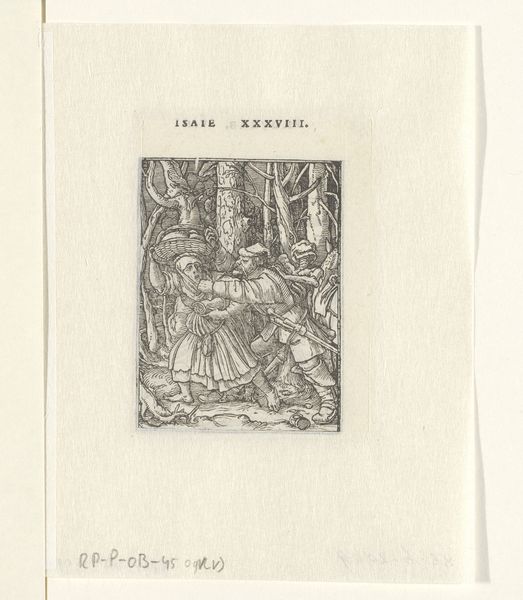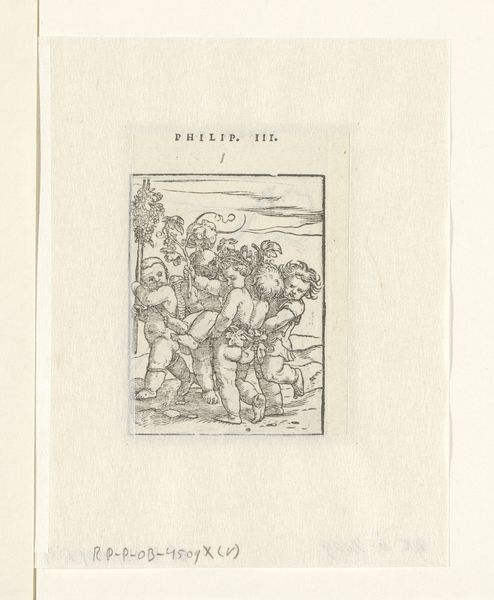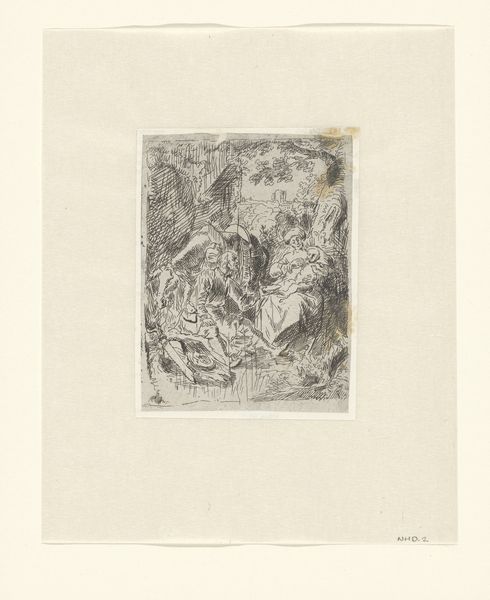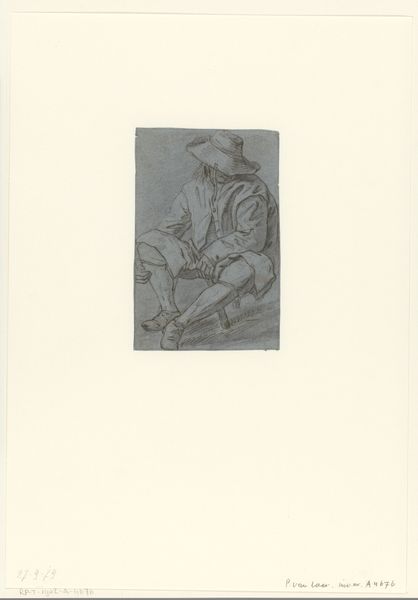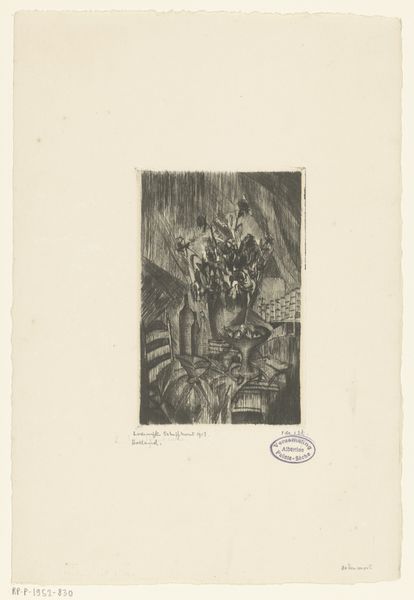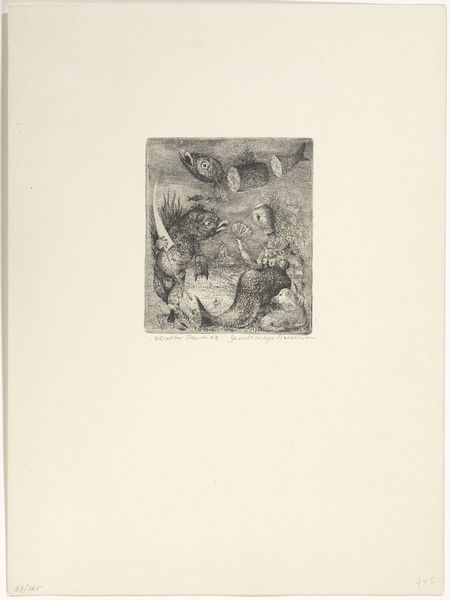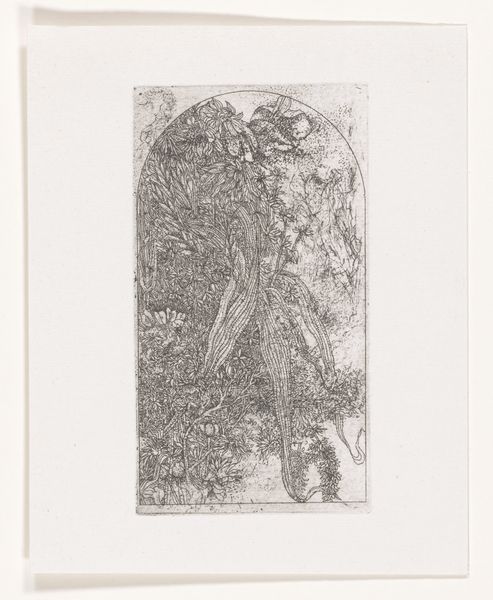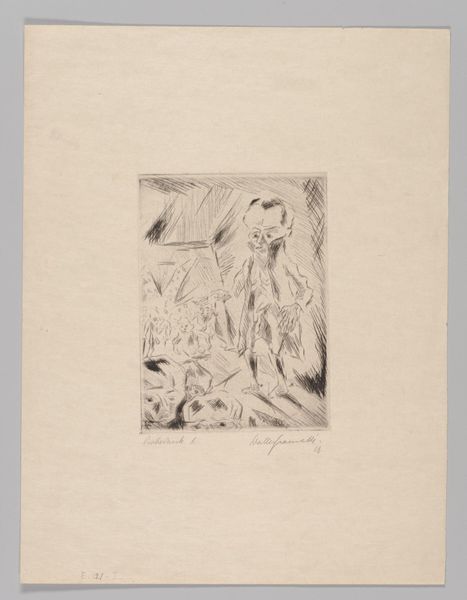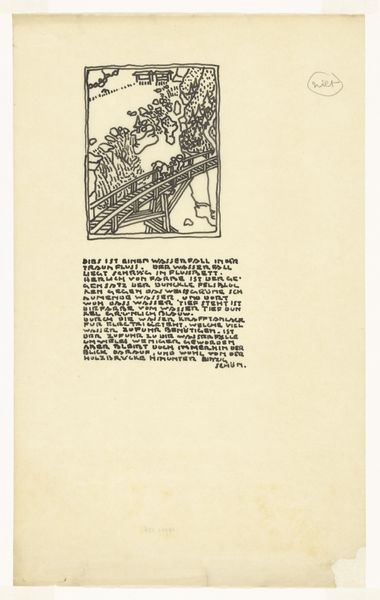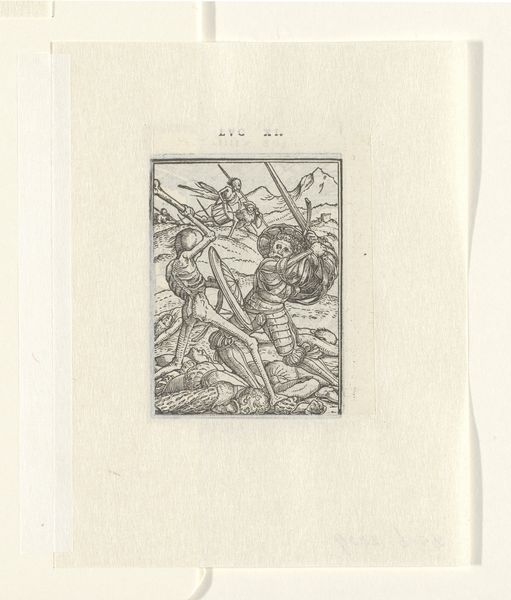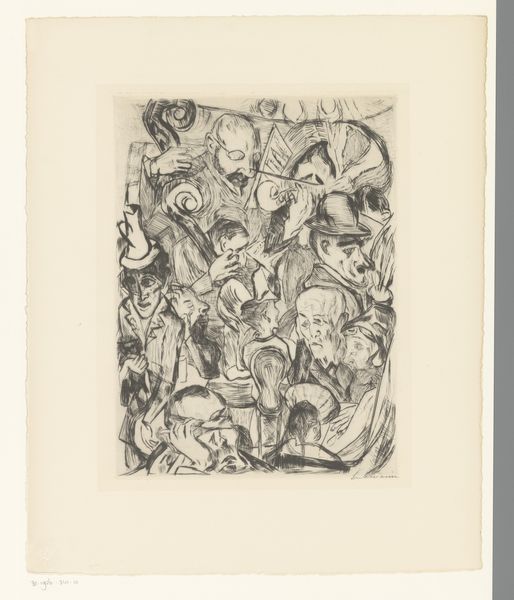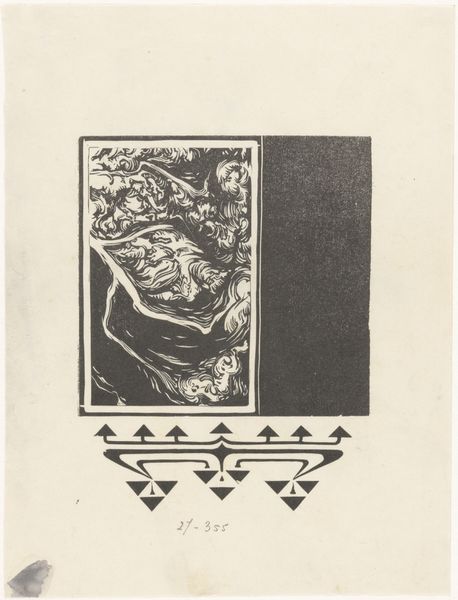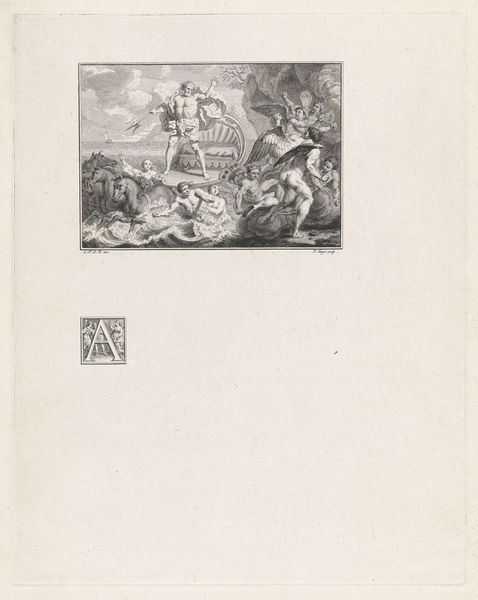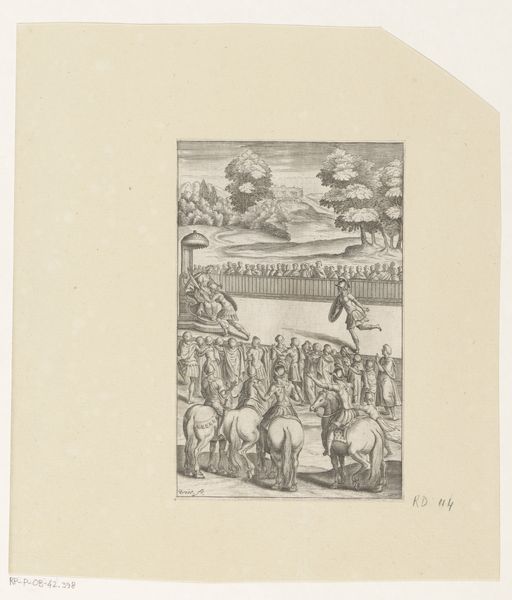
print, woodcut, engraving
#
medieval
# print
#
figuration
#
woodcut
#
line
#
history-painting
#
engraving
Dimensions: height 65 mm, width 50 mm
Copyright: Rijks Museum: Open Domain
Hans Holbein the Younger created this woodcut titled 'Voerman en de Dood' sometime in the first half of the 16th century. In this image, we see a man struggling with a cart full of barrels, while death lurks nearby, ready to strike. Holbein was Swiss-German, and this print belongs to a series known as 'The Dance of Death.' It reflects the anxieties of a society grappling with disease, religious upheaval, and social change during the Renaissance. The print's stark imagery creates meaning through the visual codes of mortality and labor, reminding viewers of the ever-present reality of death, regardless of social status. To fully understand Holbein's work, we can explore the history of the printing press and the role of images in disseminating ideas. Furthermore, examining contemporary religious and social texts can shed light on the cultural context of the time. Ultimately, art serves as a mirror reflecting the values and beliefs of its society.
Comments
No comments
Be the first to comment and join the conversation on the ultimate creative platform.
